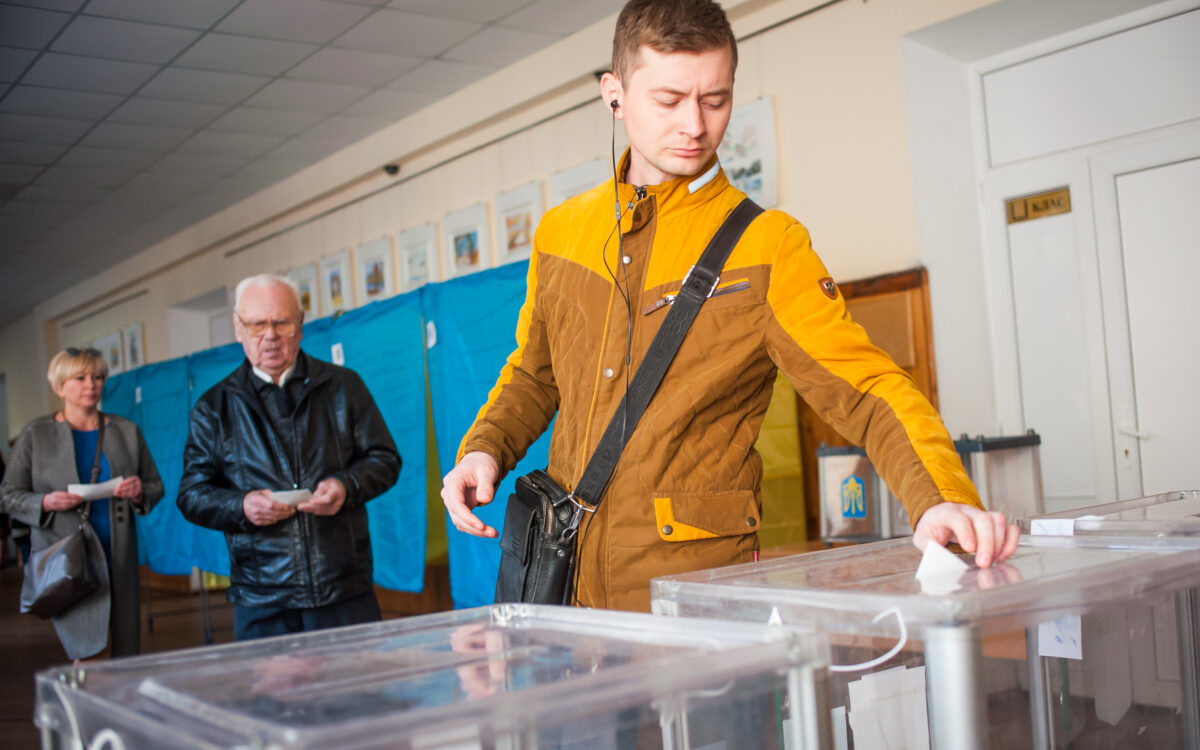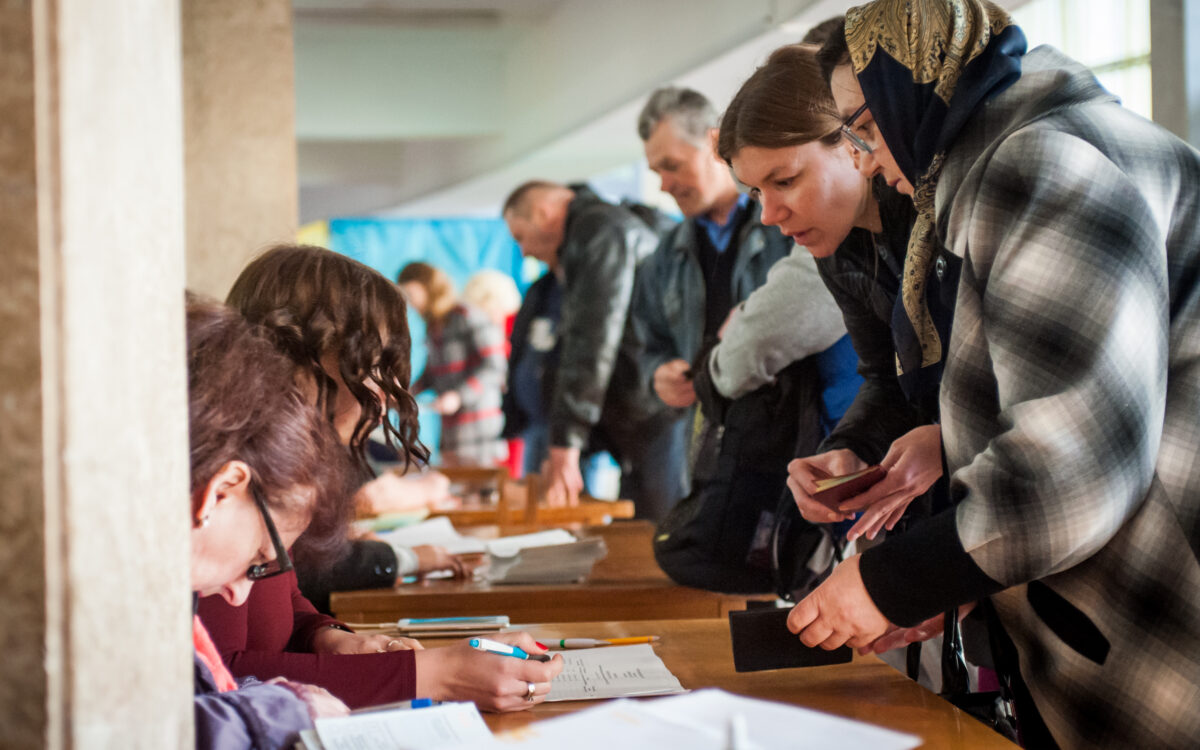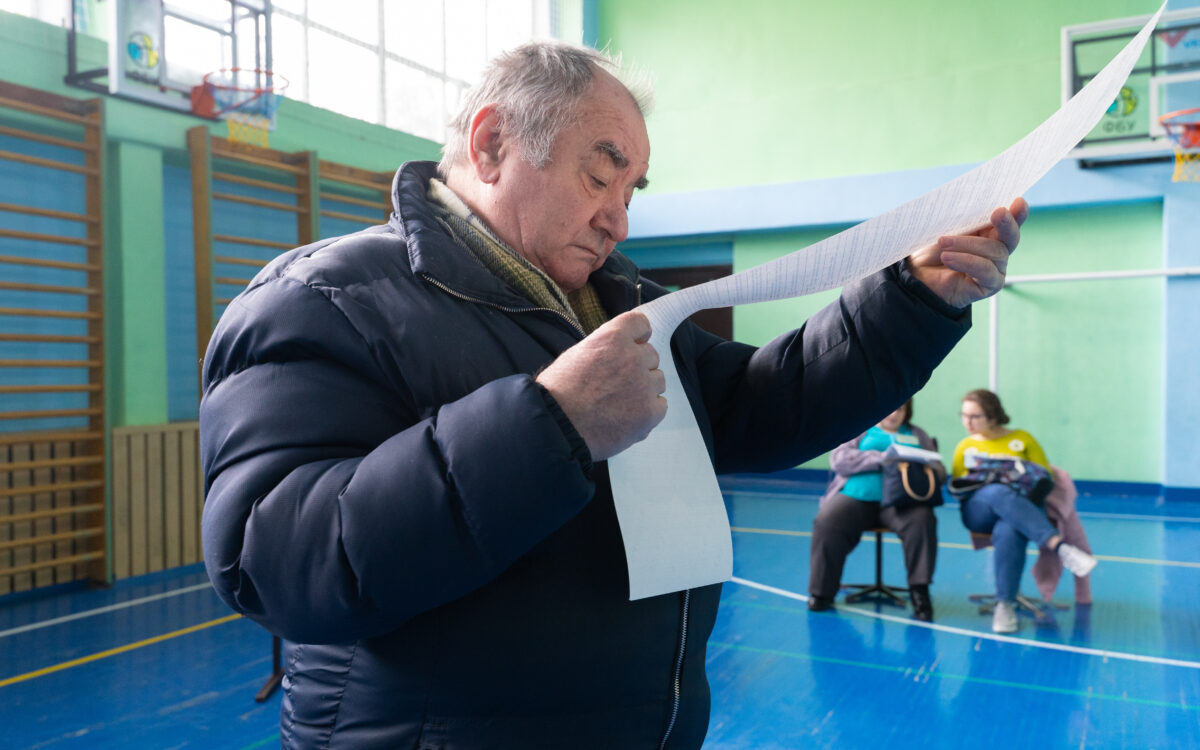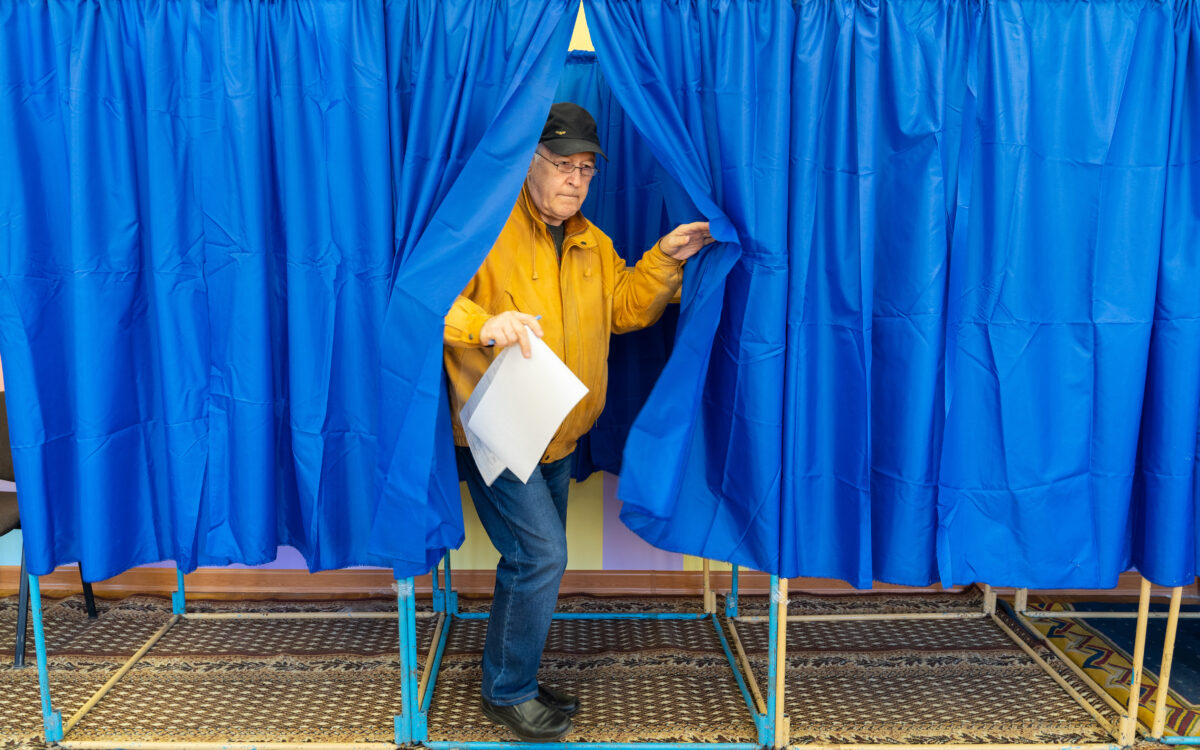
Ukrainian Judges Deepen Knowledge of Election Dispute Resolution Facilitation
20.06.2024
Ukraine Exchanges Good Practices at Regional Money in Politics Conference
11.07.2024EU and Ukraine Initiate Accession Negotiations – Pivotal Step in Ukraine’s EU Integration. On June 25, in Luxembourg, ministers from all European Union member countries and a Ukrainian government delegation announced the formal start of accession negotiations with Ukraine. The pace of Ukraine’s progress in EU membership negotiations will depend on implementing reforms within the “fundamental cluster,” which includes reforms in the rule of law, Belgian Foreign Minister Hadja Lahbib said.
President Zelenskyy commented on the beginning of accession negotiation. “When we signed the application for EU membership on the fifth day of the full-scale war, many said it was nothing but a dream. But we made this dream a reality. We achieved this, persuaded, and dispelled every doubt. In June 2022, Ukraine’s candidate status was approved despite opposition. In December 2023, European leaders supported the decision to start negotiations with Ukraine. Today, the negotiations begin.
Between these steps, there have been thousands of meetings and calls. Conditions that Ukraine has fully met. Laws that have been enacted and implemented. And, most importantly, the determination of our people, our nation. The determination that has worked, that has not failed Ukraine and all of Europe, and that proves that all Ukrainians together, all Europeans together, are capable of realizing even the biggest dreams – capable of winning.”
Regarding Hungary’s 11 demands on national minority rights, Deputy Prime Minister for European Integration Olha Stefanishyna, who heads the Ukrainian delegation to the EU accession talks, confirmed Ukraine’s readiness to fulfill them.
On the decree approving composition of the Ukrainian delegation for negotiations with the EU, President Zelenskyy instructed the government to form and approve working groups to prepare Ukraine’s negotiating positions during negotiations with the EU. The President’s decree includes only Members of Parliament and government officials in the working groups. The decree does not address whether civil society and business representatives will be included in the working groups.
Civil Network OPORA Analyzes Newly Registered Draft Law That Strengthens Women’s Political Participation. On May 27, 43 Members of Parliament from different political party factions and groups in the Verkhovna Rada, including the governing Servant of the People Party, registered new Draft Law Number 11300 titled, “Counteract Sexism in Electoral Processes and Ensure Balanced Representation of Women and Men in the Verkhovna Rada of Ukraine and Local Councils.” Read more about the Draft Law’s provisions here.
On June 25, Civil Network OPORA published its analysis of the Draft Law’s core provisions and its recommendation for improving the legislation. According to the analysis, the proposed changes to the Draft Law are generally a positive step towards ensuring gender-balanced representation and combating discrimination in the electoral process. The analysis notes that the Draft Law should be recommended for consideration on the first reading, with some of its provisions amended and finalized for the second reading, as the Draft Law covers a wide range of gender elements that need to be specified and regulated.
IFES Ukraine believes the Draft Law’s adoption will help increase the effectiveness of gender quotas, combat sexism, ensure citizen voting rights in future elections, and address other challenges in current law. IFES supports its adoption, which allows for progress in Ukraine’s ongoing electoral reform.
New Public Opinion Survey Reveals Current Level of Support for the President. On June 17, the Kyiv International Institute of Sociology published a new public opinion poll covering sampled issues in May. The survey was conducted as part of the MOBILISE project, coordinated by Olga Onuch, Professor of Comparative and Ukrainian Politics at the University of Manchester.
Approval of President Zelenskyy is at 56 percent. Zelenskyy’s approval rating is higher than that of previous presidents, but it has significantly decreased since 2023. In September 2023, it was 77 percent. According to the survey’s results, 70 percent of Ukrainians want Zelenskyy to remain president until martial law concludes; the lowest level of support is recorded in the East at 65 percent and the highest in the West at 73 percent.
If elections for president were administered soon, seven percent would vote for former Ukrainian president Petro Poroshenko, 27 percent for the former commander of the Ukrainian Armed Forces and newly appointed Ambassador to the United Kingdom Valerii Zaluzhnyi, and 27 percent for President Zelenskyy.
Among other results, 58 percent of the population somewhat or strongly agree that the government should not compromise with Russia. Sixty-five percent of respondents somewhat or strongly agree that any negotiations should be put to a referendum.
Ombudsman’s Report on Observance and Protection of Human and Civil Rights and Freedoms in Ukraine in 2023. On June 20, Ukrainian Ombudsman Dmytro Lubinets presented his annual report to the Verkhovna Rada on observing and protecting human and civil rights and freedoms in Ukraine in 2023. Two hundred and fifty Rada members voted in favor of the report. Mr. Lubinets’ report primarily addressed human rights challenges in Ukraine related to Russian aggression.
Some of the Ombudsman’s recommendations align with current priorities of election reform, including those from the joint IFES Ukraine and OPORA Roadmap. The report recommends that Rada shall amend the Election Code to facilitate voting rights for undereducated citizens, particularly the Roma community. Among other priorities outlined in the report aligning with IFES Ukraine’s mandate, the Ombudsman report recommends the Rada to adopt Draft Law Number 9103 addressing civil union registered partnerships. The report also recommends the Ministry of Justice to submit a draft law extending free secondary legal aid to victims of hate crimes to the government and mentions the need to amend Ukraine’s legislation concerning artificial intelligence technologies.
Verkhovna Rada of Ukraine Adopts Public Consultations Draft Law. On June 20, the Verkhovna Rada, with 282 MPs in favor, adopted Draft Law Number 4254 covering public consultations. Adopting this law is representative of a government-approved plan for implementing the Ukraine Facility program.
The new law mandates that public consultations be conducted by the Cabinet of Ministers, government ministries, central executive bodies, local self-government bodies, state collegial bodies, the National Bank, and enterprises and organizations exercising authority. It also includes the creation of a unified online platform for public consultations and regulates the procedure for those consultations.
Ukrainian civil society organizations generally welcomed the Draft Law’s adoption but criticized it for not requiring MPs to hold public consultations. The Reanimation Package of Reforms also called on the Rada to improve the law in the future by extending the obligation to conduct public consultations on draft laws to Members of Parliament.
As evident from the publicly held discussion in March 2024 organized by the National Democratic Institute, the Center for Political and Legal Reform (CPLR) supports that MPs shall be required to conduct public consultations when submitting draft laws as well.
“My position is that the extension of the obligation to hold public consultations to draft laws of MPs does not contradict the Constitution of Ukraine; but, the exclusion of one subject of legislative initiative from the scope of the Law on Public Consultations raises doubts about the constitutionality of this approach,” noted Yulia Kyrychenko, a member of the CPLR Board, when asked whether this Draft Law is in line with the Ukrainian Constitution.
The discussion and overview of provisions of Draft Law 4254 are available here.
International Crisis Group Reports “A Fraught Path Forward for Ukraine’s Liberated Territories.” On June 20, the International Crisis Group released its report no. 271, titled, “A Fraught Path Forward for Ukraine’s Liberated Territories,” highlighting the severe strain on Ukraine’s social fabric and state and government institutions due to Russia’s destructive occupation. President Zelenskyy’s administration is faced with limited resources for recovering liberated territories because of its focus on defeating Russia on the battlefield. It is crucial to address urgent needs in these areas for immediate relief and to demonstrate the Ukrainian state and government are more capable of protecting and providing for civilians than Russian occupiers.
The authors stress that for the successful reintegration of liberated areas, the Ukrainian government and its international allies must prioritize several actions: Clearing mines to ensure safety, addressing the most pressing needs of the population, politically empowering liberated areas in Kyiv, and allocating resources to document and prosecute war crimes committed by Russians during their occupation.
The report highlights that Ukraine’s hastily implemented anti-collaboration law has resulted in over 1,600 criminal sentences, with more anticipated. Intended to deter locals from aiding Russian forces, the law has unintended consequences such as employment restrictions and discouraging essential labor.
The International Crisis Group report concludes by noting that despite Ukraine’s significant military achievements in late 2022, the government must balance the ongoing conflict with Russia with efforts to bring peace and justice to liberated areas. Clear guidelines are crucial to set expectations for those living under occupation and ensure a fair and effective reintegration process after Russia’s defeat and withdrawal.
In the Face of Russian Propaganda, Public Statements Affirming President Zelenskyy’s Legitimacy Continue. On June 18, the Chair of the Verkhovna Rada Legal Policy Committee, Denys Maslov, gave an interview in the Ukrainian media journal Glavkom, affirming that President Zelenskyy will remain in office until the war is over. He argues that some Ukrainian politicians are playing into the hands of Russia’s dictator, Vladimir Putin, who claims that Ukrainians should appeal to the Constitutional Court regarding President Zelenskyy’s legitimacy.
“I don’t understand what needs to be explained to whom,” said Mr. Maslov. “We have provisions in the Constitution and the law, ‘On the Legal Regime of Martial Law,’ where everything is stated. According to the existing norms, everything related to the legal aspect [of continued tenure] is obvious and clear.”
On June 19, Foreign Minister Dmytro Kuleba gave an interview to BBC Hard Talk in which he expressed his view on the Ukraine Peace Summit in Switzerland on June 15 and 16. He also commented on the alleged risks of President Zelenskyy losing the trust of Western partners due to the end of his democratic mandate and the inability to hold new elections. Minister Kuleba stated last week that he traveled and attended meetings between Zelenskyy and Group of Seven leaders and other world leaders. He noted that the topics discussed and decisions made did not give him any sense that trust is fading in Ukraine and its leadership.






